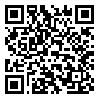Sun, Jul 6, 2025
| فارسی
Volume 14, Issue 3 (Autumn 2012)
Advances in Cognitive Sciences 2012, 14(3): 51-62 |
Back to browse issues page
Download citation:
BibTeX | RIS | EndNote | Medlars | ProCite | Reference Manager | RefWorks
Send citation to:



BibTeX | RIS | EndNote | Medlars | ProCite | Reference Manager | RefWorks
Send citation to:
Jafari Z, Toufan R, Aghamollaei M, Asad Malayeri S, Rahimzadeh S, Esmaili M. Impact of Tinnitus on Divided and Selective Auditory Attention in Workers Exposed to Occupational Noise. Advances in Cognitive Sciences 2012; 14 (3) :51-62
URL: http://icssjournal.ir/article-1-494-en.html
URL: http://icssjournal.ir/article-1-494-en.html
Zahra Jafari *1 
 , Reyhaneh Toufan2
, Reyhaneh Toufan2 
 , Maryam Aghamollaei2
, Maryam Aghamollaei2 
 , Saeed Asad Malayeri3
, Saeed Asad Malayeri3 
 , Shadi Rahimzadeh2
, Shadi Rahimzadeh2 
 , Mahdiyeh Esmaili2
, Mahdiyeh Esmaili2 


 , Reyhaneh Toufan2
, Reyhaneh Toufan2 
 , Maryam Aghamollaei2
, Maryam Aghamollaei2 
 , Saeed Asad Malayeri3
, Saeed Asad Malayeri3 
 , Shadi Rahimzadeh2
, Shadi Rahimzadeh2 
 , Mahdiyeh Esmaili2
, Mahdiyeh Esmaili2 

1- Department of Basic Sciences in Rehabilitation, School of Rehabilitation, Tehran University of Medical Sciences; Rehabilitation Research Center (RRC), Tehran University of Medical Sciences, Tehran, Iran.
2- Rehabilitation Research Center (RRC), Tehran University of Medical Sciences; Department of Audiology, School of Rehabilitation, Tehran University of Medical Sciences, Tehran, Iran.
3- Department of Audiology, University of Social Welfare & Rehabilitation Sciences, Tehran, Iran.
2- Rehabilitation Research Center (RRC), Tehran University of Medical Sciences; Department of Audiology, School of Rehabilitation, Tehran University of Medical Sciences, Tehran, Iran.
3- Department of Audiology, University of Social Welfare & Rehabilitation Sciences, Tehran, Iran.
Abstract: (3108 Views)
Objective: Occupational noise is one of the major causes of hearing loss and tinnitus. In the present study, the effect of occupational noise-induced tinnitus on auditory attention was investigated.
Method: A sample of 42 man, all workers, ages 40 to 56, participated in the study in three groups of workers with hearing loss, hearing loss and tinnitus, and normal hearing. Workers in two first groups had a long history of working in environments with excessive noise, and third group was matched control workers with normal hearing. For all subjects the Mini-Mental State Examination (MMSE) and the Bergen dichotic listening test were performed in identical conditions.
Results: In all three conditions of attention, including non-forced, forced right, and forced left attentions, right ear advantage (REA) was lower in tinnitus and hearing loss group than the two other groups. The difference between the tinnitus and hearing loss groups and the control group was significant in the non-forced attention condition (p<0.047). Furthermore, both groups had poorer result in the MSSE test compared to the control group (p<0.025).
Conclusion: Our study revealed effect of noiseinduced tinnitus on selective and divided auditory attention. It seems that tinnitus is affects both both bottom- up and top-down processing of speech stimuli.
Method: A sample of 42 man, all workers, ages 40 to 56, participated in the study in three groups of workers with hearing loss, hearing loss and tinnitus, and normal hearing. Workers in two first groups had a long history of working in environments with excessive noise, and third group was matched control workers with normal hearing. For all subjects the Mini-Mental State Examination (MMSE) and the Bergen dichotic listening test were performed in identical conditions.
Results: In all three conditions of attention, including non-forced, forced right, and forced left attentions, right ear advantage (REA) was lower in tinnitus and hearing loss group than the two other groups. The difference between the tinnitus and hearing loss groups and the control group was significant in the non-forced attention condition (p<0.047). Furthermore, both groups had poorer result in the MSSE test compared to the control group (p<0.025).
Conclusion: Our study revealed effect of noiseinduced tinnitus on selective and divided auditory attention. It seems that tinnitus is affects both both bottom- up and top-down processing of speech stimuli.
Keywords: Noise-Induced Hearing Loss, Tinnitus, Divided Attention, Selective Attention, Top-Down Processing, Bottom-Up Processing
Type of Study: Research |
Subject:
Special
Received: 2012/05/21 | Accepted: 2012/07/22 | Published: 2012/09/22
Received: 2012/05/21 | Accepted: 2012/07/22 | Published: 2012/09/22
Send email to the article author
| Rights and permissions | |
 |
This work is licensed under a Creative Commons Attribution-NonCommercial 4.0 International License. |

